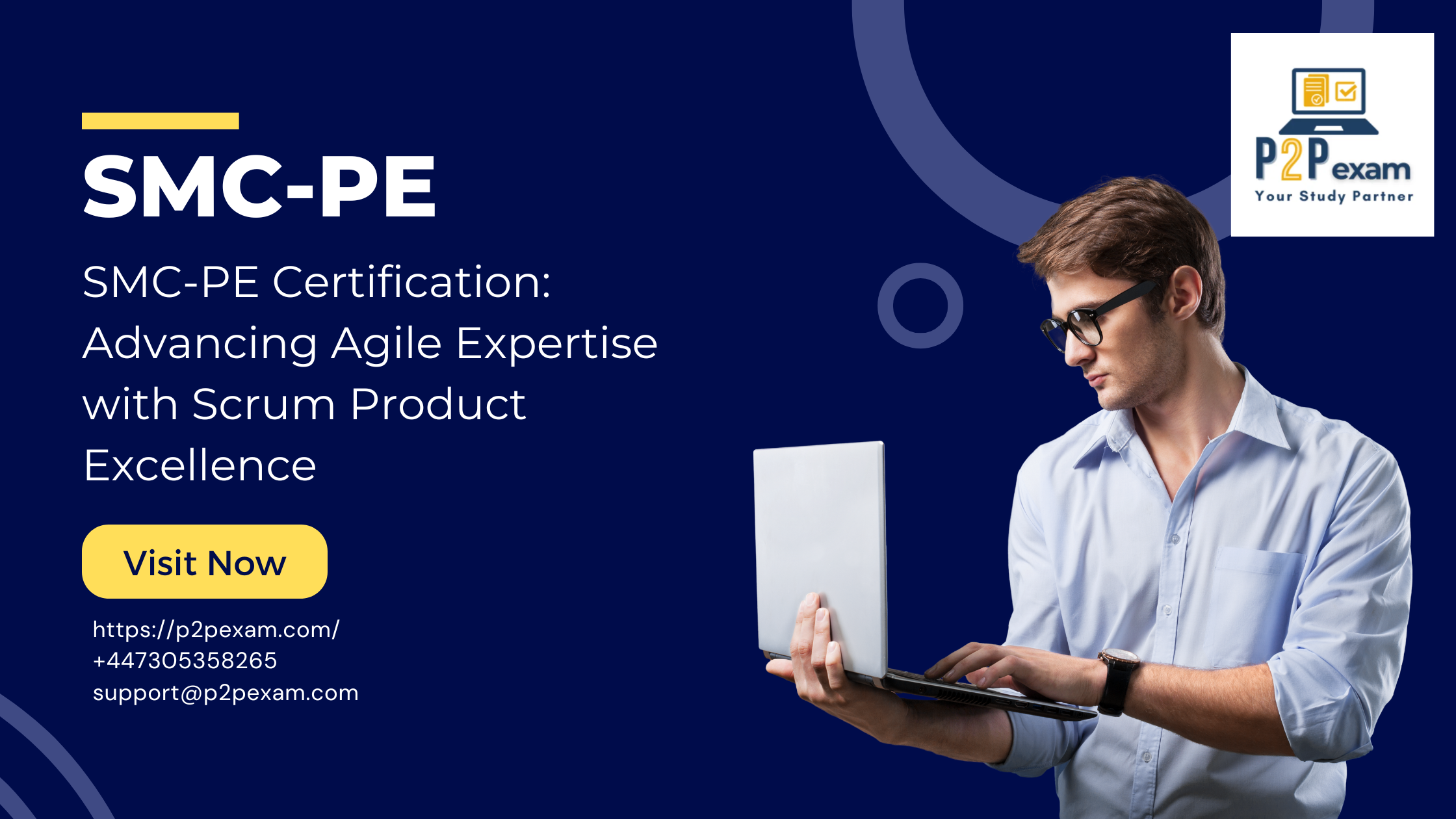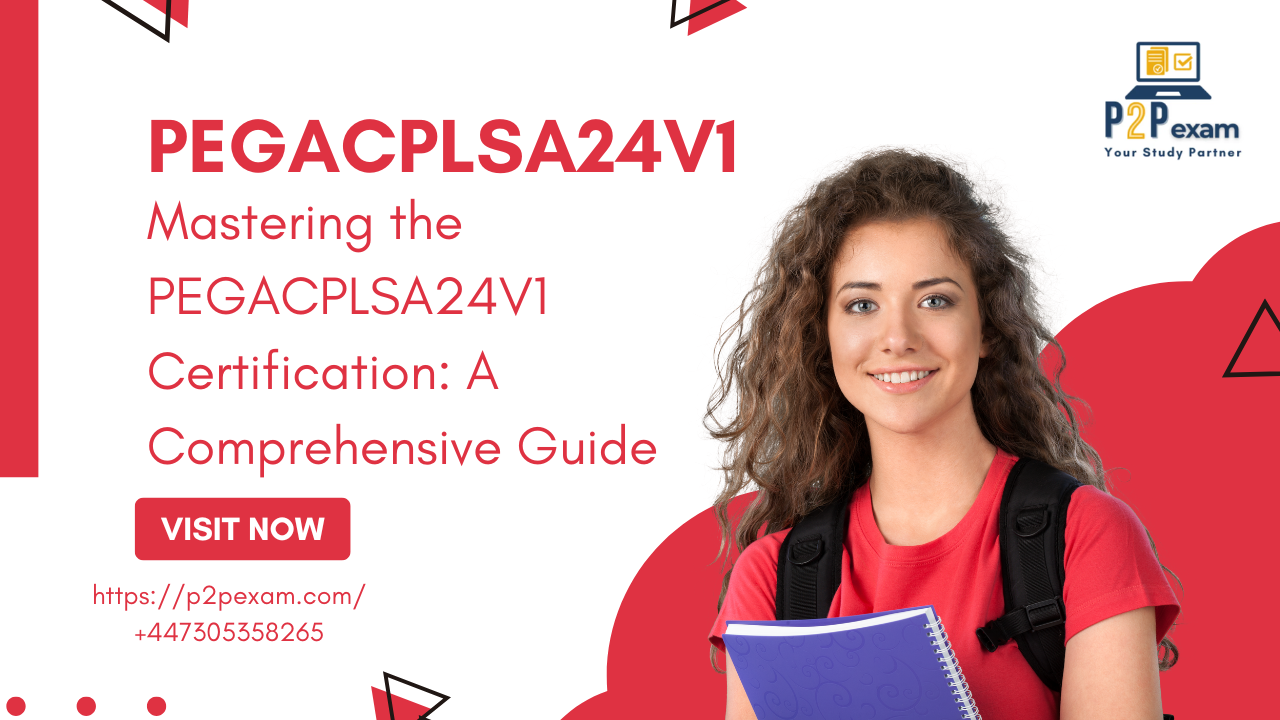SMC-PE Certification: Advancing Agile Expertise with Scrum Product Excellence

Strong 8k brings an ultra-HD IPTV experience to your living room and your pocket.
Scrum continues to be one of the most dependable and extensively used frameworks in the ever-changing fields of software development and business agility. While SMC-PE (Scrum Master Certified – Product Expert) and other advanced credentials give professionals the chance to specialise and lead with authority in product-driven agile environments, basic Scrum Master certifications lay the groundwork for understanding.
By giving Scrum practitioners extensive knowledge of Scrum principles, tools, product management integration, and enterprise-level Scrum practices, the SMC-PE certification aims to improve their proficiency. This article examines the SMC-PE certification's specifics, including its benefits, target audience, exam format, study advice, and how it supports an Agile career.
What is SMC-PE?
For seasoned Scrum Masters and Agile professionals who wish to learn more about how to integrate the product lifecycle into Scrum, there is an advanced certification called the Scrum Master Certified – Product Expert (SMC-PE). It combines sophisticated ideas in product ownership, stakeholder collaboration, product strategy, and delivery optimisation with the fundamental Scrum values.
Traditional Scrum Master certifications focus on team facilitation and the Scrum process framework; SMC-PE broadens this focus by emphasising the relationship between process and product, enabling certified professionals to match development practices with business value.
Why Choose SMC-PE Certification?
1. Deeper Scrum Proficiency
Professionals who complete SMC-PE are guaranteed to comprehend Scrum principles and be able to apply them to intricate product environments. It helps professionals make strategic decisions about products and enhances their leadership skills.
2. Career Advancement
Advanced Scrum leaders who can mentor both delivery teams and product stakeholders are sought after by organisations. Positions like Senior Scrum Master, Agile Coach, Product Strategy Lead, and Agile Delivery Manager are made possible by this certification.
3. Organizational Impact
Through better stakeholder satisfaction, better alignment between technical teams and business units, and faster product delivery timelines, certified SMC-PE professionals make a quantifiable difference.
4. Recognition and Credibility
Globally recognized, the SMC-PE certification enhances your professional credibility and showcases your commitment to mastering Scrum beyond the fundamentals.
Who Should Pursue SMC-PE?
The SMC-PE certification is ideal for:
• Experienced Scrum Masters looking to deepen their skills
• Product Owners aiming to integrate product strategy with Agile execution
• Agile Coaches seeking structured approaches for mentoring product teams
• Project Managers & Program Leads transitioning into Agile environments
• Business Analysts & Product Managers working closely with Agile development teams
It is recommended (though not always required) that candidates have a prior certification like SMC™ (Scrum Master Certified) or CSM® (Certified ScrumMaster®) and at least 2 years of Agile or Scrum experience.
Key Topics Covered in SMC-PE
Here’s a detailed breakdown of the major subject areas addressed in the SMC-PE certification:
1. Scrum Mastery in Complex Environments
• Scaling Scrum across large teams and multiple products
• Handling distributed teams and time zones
• Adapting Scrum to enterprise-level challenges
2. Advanced Product Lifecycle Management
• Understanding the end-to-end product lifecycle in Agile
• Product ideation, vision creation, and roadmap development
• Prioritization strategies and economic decision-making
3. Stakeholder Engagement and Product Strategy
• Collaborating with internal and external stakeholders
• Navigating competing priorities and organizational silos
• Delivering business value through strategic alignment
4. Scrum Metrics and Agile Analytics
• Using KPIs to evaluate team performance
• Implementing dashboards for transparency
• Leveraging data for continuous improvement
5. Coaching and Facilitation
• Coaching Product Owners, developers, and leadership
• Conflict resolution and team dynamics
• Driving a culture of feedback and learning
6. Agile Tools and Frameworks
• Integrating Scrum with Kanban, SAFe®, LeSS®, or Nexus®
• Utilizing tools like JIRA, Azure DevOps, and Confluence
• Managing backlogs, sprints, and release planning efficiently
SMC-PE Exam Structure
Exam Component Details
Certification Name Scrum Master Certified – Product Expert (SMC-PE)
Exam Format Multiple-choice questions
Duration 120 minutes
Number of Questions 100
Passing Score 75% (75 correct answers)
Delivery Mode Online, proctored
Prerequisites Recommended: Basic Scrum Certification (e.g., SMC™) and relevant experience
The exam tests not only theoretical knowledge but also situational judgment, requiring candidates to apply Scrum and product principles in realistic business scenarios.
How to Prepare for the SMC-PE Exam
1. Attend an Official Training Program
The majority of applicants gain from organised training programs offered by Scrum Alliance, ScrumStudy, or other recognised organisations. These programs provide tools for exam preparation, simulations, and real-world case studies.
2. Review Scrum Guides and Product Management Frameworks
Familiarize yourself with the latest Scrum Guide, as well as essential product strategy texts like:
• Inspired by Marty Cagan
• Lean Product and Lean Analytics
• Agile Estimating and Planning by Mike Cohn
3. Practice with Scenario-Based Questions
Practice implementing Scrum in product development scenarios by using case studies and practice tests. Pay attention to enquiries about trade-off analysis, prioritisation, and stakeholder communication.
4. Engage in Community Learning
Join online Scrum forums, LinkedIn groups, or Slack communities where certified professionals discuss strategies, real-life implementation tips, and exam feedback.
5. Apply in Real Projects
Whenever possible, reinforce your theoretical knowledge with hands-on Scrum experience. Use retrospectives, product backlog grooming, and sprint reviews to build practical confidence.
Sample SMC-PE Question
Question:
As a Scrum Master working with multiple teams on a single product, what is the best way to ensure backlog alignment across all teams?
A. Assign each team its own Product Owner
B. Use a single, shared product backlog and coordinate during joint backlog refinement sessions
C. Let each team prioritize its own backlog
D. Use email communication between teams
Correct Answer: B
Explanation: A shared backlog ensures alignment of priorities, and joint refinement sessions help resolve cross-team dependencies.
Recertification and Continuing Education
Usually, SMC-PE certifications are good for three years. Completing continuing education units (CEUs), attending advanced Agile workshops, or retaking the updated exam are some ways to become recertified. For specific policies, check with your certifying body.
For trusted preparation resources, verified exam questions, and study guides, visit:
👉 SMC-PE Exam Resources – P2PExam
Note: IndiBlogHub features both user-submitted and editorial content. We do not verify third-party contributions. Read our Disclaimer and Privacy Policyfor details.



